04/12/2010
Mathematics Magazine
Mathematics Magazine:
Guidelines for Authors
What do you like to read? What kind of writing can grab the interest of an undergraduate mathematics major? How can Mathematics Magazine serve to remind us all why we chose to study mathematics in the first place? If you keep these questions firmly in mind, you will be well on the way to meeting our editorial guidelines.
General information
Mathematics Magazine is an expository journal of undergraduate mathematics. In this section, we amplify our meaning of these words.Articles submitted to the Magazine should be written in a clear and lively expository style. The Magazine is not a research journal; papers in a terse "theorem-proof" style are unsuitable for publication. The best contributions provide a context for the mathematics they deliver, with examples, applications, illustrations, and historical background. We especially welcome papers with historical content, and ones that draw connections among various branches of the mathematical sciences, or connect mathematics to other disciplines.
Every article should contain interesting mathematics. Thus, for instance, articles on mathematical pedagogy alone, or articles that consist mainly of computer programs, would be unsuitable.
The Magazine is an undergraduate journal in the broad sense that its intended audience is teachers of collegiate mathematics and their students. One goal of the Magazine is to provide stimulating supplements for undergraduate mathematics courses, especially at the upper undergraduate level. Another goal is to inform and refresh the teachers of these courses by revealing new connections or giving a new perspective on history. We also encourage articles that arise from undergraduate research or pose questions to inspire it. In writing for the Magazine, make your work attractive and accessible to non-specialists, including well-prepared undergraduates.
Writing and revising
Mathematics Magazine is responsible first to its readers and then to its authors. A manuscript's publishability therefore depends as much on the quality of exposition as the mathematical significance. Our general advice is simple: Say something new in an appealing way, or say something old in a refreshing, new way. But say it clearly and directly, assuming a minimum of background. Our searchable database of past pieces from the Magazine and the College Mathematics Journal can help you check the novelty of your idea.Make your writing vigorous, expressive, and informal, using the active voice. Give plenty of examples and minimize computation. Help the reader understand your motivation and share your insights. Illustrate your ideas with visually appealing graphics, including figures, tables, drawings, and photographs.
First impressions are vital. Choose a short, descriptive, and attractive title; feel free to make it funny, if that would draw the reader in. Be sure that the opening sentences provide a welcoming introduction to the entire paper. Readers should know why they ought to invest time reading your work.
Our referees are asked to give detailed suggestions on style, as well as check for mathematical accuracy. In practice, almost every paper requires a careful revision by the author, followed by further editing in our office. To shorten this process, be sure to read your own work carefully, possibly after putting it away for a cooling-off period.
Provide a generous list of references to invite readers—including students—to pursue ideas further. Bibliographies may contain suggested reading along with sources actually referenced. In all cases, cite sources that are currently and readily available.
Since 1976, the Carl B. Allendoerfer Prize has been awarded annually to recognize expository excellence in the Magazine. In addition to these models of style, many useful references are available. Some are listed at the end of these guidelines.
Style and format
We assume that our authors are at least sometime-readers of the Magazine, with some knowledge of its traditions. If so, they know that most papers are published either as Articles or as Notes. Articles have a broader scope than Notes and usually run longer than 2000 words. Notes are typically shorter and more narrowly focused. Articles should be divided into a few sections, each with a carefully chosen title. Notes, being shorter, usually need less formal sectioning. Footnotes and subsectioning are almost never used in the Magazine.In addition to expository pieces, we accept a limited number of Math Bites, poems, cartoons, Proofs Without Words, and other miscellanea.
List references either alphabetically or in the order cited in the text, adhering closely to the Magazine's style for capitalization, use of italics, etc.
We recommend using simple, unadorned LaTeX in the preparation of your manuscript. Whatever technology you use, your manuscript should be generously spaced, with the title, author, and author's address at the top of the first page. Templates with further stylistic details are posted at our website in a variety of formats. Number the pages, but number only those equations that you refer to in the text. WhetherLaTeX is used or not, we hope for some electronic version of every article accepted.
Simple LaTeX template files are available for Articles and Notes. These templates do not approximate the appearance of Articles and Notes, but illustrate the desired format for submission to the Magazineand offer advice about style, as well as technical help. Using them requires only the most rudimentary knowledge of TeX or LaTeX. They are available in .pdf and .tex formats. Click on the appropriate filename(s) to obtain copies. (mmnote.tex, mmnote.pdf, mmartic.tex, mmartic.pdf ) For more information or to request hard copies, send email to maaservice@pmds.com. For technical information about preparing manuscripts and figures, see the general guidelines for MAA authors (this is a pdf file).
If you wish to provide any electronic complement to your article, including such things as color illustrations, Java applets, or animations, supply the URL of your draft site. If your article is accepted, complements will be hosted on this site.
In the interest of respecting the time of our referees, we recommend a referee's appendix, not for publication, but to guide the referee. Please expand on statements such as, "A simple calculation shows... ." It is often appropriate to suppress such things in exposition, but a referee might find the additional information a time-saver.
For initial submission, graphical material may be interspersed with text. Each figure should be numbered, and referenced by number in the text. Authors themselves are responsible for providing images of suitable quality. If a piece is to appear in the Magazine, separate copies of all illustrations must be supplied, both with and without added lettering. We hope authors will be able to provide electronic versions of all figures, preferably in a PostScript format.
Submitting manuscripts
Please submit new manuscripts by email to Editor Walter Stromquist at mathmag@maa.org. A brief message with an attached PDF file is preferred. Word processor and DVI files can also be considered. Alternatively, manuscripts may be mailed to:Mathematics Magazine
132 Bodine Rd.
Berwyn, PA 19312-1027
If possible, please include an email address for further correspondence.
References
- R.P. Boas, Can we make mathematics intelligible? Amer. Math. Monthly 88 (1981), 727--731.
- Paul Halmos, How to write mathematics, Enseign. Math. 16 (1970), 123--152. Reprinted in Halmos, Selecta, expository writings, Vol. 2, Springer, New York, 1983, 157--186.
- Andrew Hwang, Writing in the age of Latex, AMS Notices 42 (1995), 878--882.
- D.E. Knuth, T. Larrabee, and P.M. Roberts, Mathematical Writing, MAA Notes #14, 1989.
- Steven G. Krantz, A Primer of Mathematical Writing, American Mathematical Society, 1997.
- N. David Mermin, Boojums All the Way Through, Cambridge Univ. Pr., Cambridge, UK, 1990.
07:50 Publié dans Mathematics Magazine | Lien permanent | Commentaires (0) |  |
|  del.icio.us |
del.icio.us |  |
|  Digg |
Digg | ![]() Facebook
Facebook
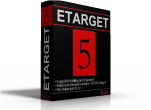
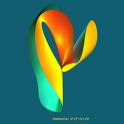




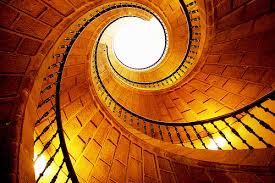


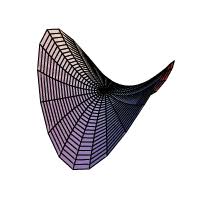

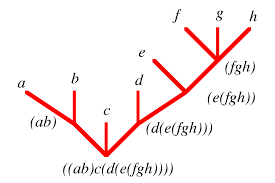

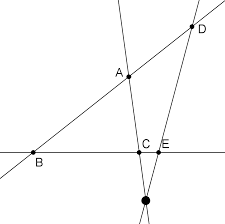
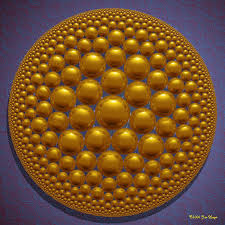
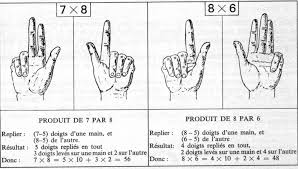
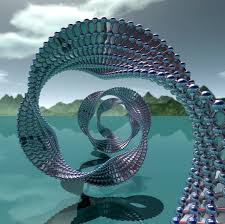

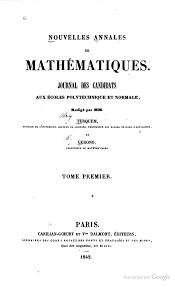
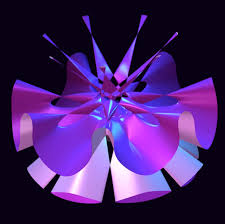
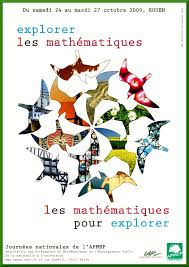
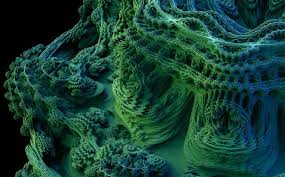


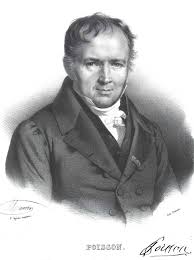

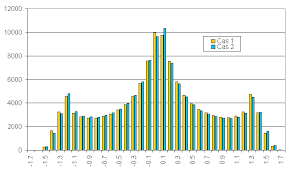
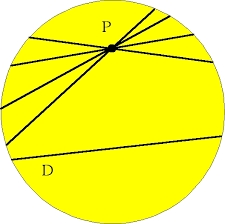

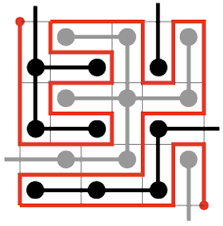
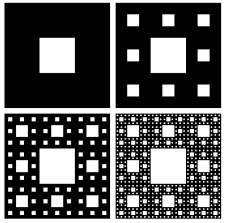
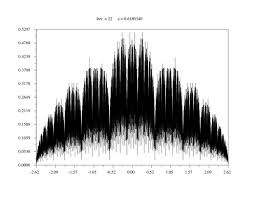
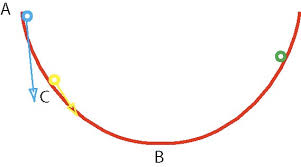
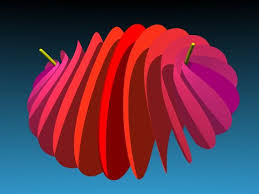
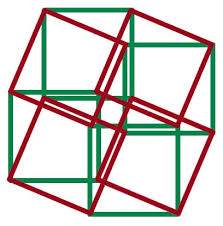



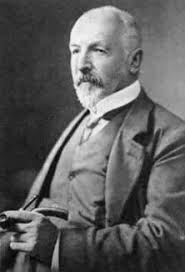

Les commentaires sont fermés.